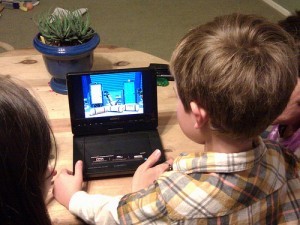 Friends on the autistic spectrum find conversations, socializing, and communicating a real challenge. We always hear how children with autism struggle with socializing. How they avoid eye contact and initiating play with friends. I am finding with my own son, the language, first, had to be established, and now, he’s able to ask friends to play or introduce his family members to others. Still, it’s a challenge and most parents of autistic children would probably agree, it will always be a challenge. But, if we prepare them and give them practice and skills, they will be ready to socialize and build strong relationships as they get older.
Friends on the autistic spectrum find conversations, socializing, and communicating a real challenge. We always hear how children with autism struggle with socializing. How they avoid eye contact and initiating play with friends. I am finding with my own son, the language, first, had to be established, and now, he’s able to ask friends to play or introduce his family members to others. Still, it’s a challenge and most parents of autistic children would probably agree, it will always be a challenge. But, if we prepare them and give them practice and skills, they will be ready to socialize and build strong relationships as they get older.
With socialization comes reading people’s body language and facial expressions, dissecting sarcastic remarks, laughing at jokes, and a whole gammit of things others sometimes take for granted. As my son grows, one of my main concerns is preparing him to stand up for himself, should a questionable situation arise and no adults are around. This is where the iPad is a great resource for helping kids improve on their conversation building, vocabulary building, learning facial expressions, and understanding social scenarios, both good and bad. They can also learn when to ask for help or seek help in a questionable situation.
Helpful iPad Apps
We discovered a few apps that have proven very helpful for my autistic son. Alligator Apps free Emotions app lets children pick a picture that goes with a verbal prompt. The pictures are bright, show different emotions and facial expressions, and will keep a child’s attention as they listen to the verbal prompt, then tap the picture that matches the emotion. Autistic children find it challenging to discern happy from sad; mad from calm. They are visual learners and this app really includes great images for kids to associate emotions with.
Another app that helps children with questions is Super Duper Publications’ Ask and Answer WH Questions app helps children with who, what, when, where, and why questions. The who app is free, and the rest are available for purchase. My son spoke in bits and pieces and one- to two-word sentences for a long time. It was important to build his vocabulary and questioning skills so he could communicate better with caregivers and teachers and, especially, if he needed help. This app lets kids choose from multiple choice, decoder, matching, and drag ‘n match games to work on their questions.
Super Duper Publications also has a WH Questions at School app for school-aged kids. It asks lists of questions that are school-related. This app asks questions about where students eat lunch, who are their teachers, what do you like in PE, etc. They can learn to use these again in conversation with their teachers or peers. Once my son learned the wh questions, he’s really be talking with us, his peers, and asking more intuitive questions.
We also use the Toca Boca apps, which vary in price and are excellent for showing kids different social scenarios. We especially like Toca House, Toca Hair Salon, Toca Kitchen Monsters, and Toca Store. There are others for scenarios like playing in a band, sewing, tea parties, and birthday parties.
We like the iPad apps for its mobility, usability, and these apps are great for helping my autistic son communication and socialize. Hope they are helpful for you, too!
Photo courtesy of: ursonate



